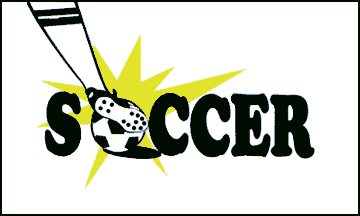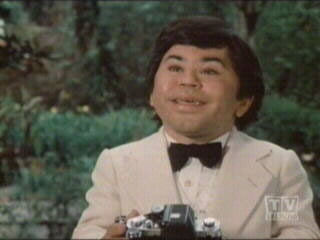
Tags
Canada
Federal Election
Politics
blogs
soccer
NDP
Conservatives
Liberals
Green Party
It’s possible that I shall make an ass of myself. But in that case one can always get out of it with a little dialectic. I have, of course, so worded my proposition as to be right either way (K.Marx, Letter to F.Engels on the Indian Mutiny)






Too late, but Harper tosses Liberals a lifelineNational Post Harper says Senate shouldn't block Tory bills
Canadian Press
WATERDOWN, Ont. — Stephen Harper says outlawing gay marriage won't be one of his top priorities if elected, and that efforts by the Senate to block such a bill would amount to an "abuse of power.''
Two days after saying that a Liberal-dominated Senate would be a check on Tory power, the Conservative leader signalled that he expects the high chamber to defer to Parliament on such contentious issues.
But the harder-to-fix problem for Harper is that his cracks stirred memories of an angry, vindictive streak that worried Canadians enough to send them reluctantly back to Liberals in the last election's final weekend That's not the Harper Canadians are rallying around now. Calm, reassuring and happiest talking about policy, the Conservative leader has redefined himself as far from scary.
Harper’s team of advisers offer eclectic mix
Financial Times, UK
The most significant appointments are three political operatives with close ties to former Conservative prime minister Brian Mulroney: Conservative Senator Marjory LeBreton, formerly appointments secretary in Mr Mulroney’s office; Conservative Senator Hugh Segal, who was his principal secretary; and Derek Burney, who was his chief of staff before being named ambassador to the US.Among Mr Harper’s retinue of academic advisers, Tom Flanagan, a political scientist, has attracted the most attention because of his strong views on both aboriginal programmes and the role of government. His influence was seen in Mr Harper’s decision to renounce the C$5bn deal Ottawa signed with aboriginal groups in November. Mr Flanagan and other academic members of the Calgary School of conservative thinkers favour market-oriented policies to reduce the role of government. They draw their inspiration from Republicans in the US.
If the Conservative leader is cut from the same cloth as Margaret Thatcher, Ronald Reagan and Mike Harris, expect him to slash government programs, says James Laxer
In power, Harper will reopen the debate about Canada signing on to U.S. missile defence and is likely to cancel Canada's commitment to the Kyoto environmental accord. He refuses to commit himself to honouring the far-reaching aboriginal development program agreed to by first ministers last autumn. He will not throw Ottawa's weight behind the establishment of publicly funded, not for profit, child care across the country. And, as he said on day one of the election campaign, he plans to reopen the issue of same-sex marriage. Perhaps the best clue that Harper has not moderated comes from his commitment to resolve the so-called fiscal imbalance in Canada. In plain English that means that a Harper government would sharply reduce Ottawa's role in setting the nation's socio-economic agenda. That pledge, one of Harper's top five priorities, could well become his mantra as he slashes government programs in the days to come.
Who is Stephen Harper, the Conservative poised to be Canada’s next prime minister?Editorial endorsements of a Conservative election victory by such establishment newspapers as Toronto’s Globe & Mail and Montreal’s La Presse have been justified on the grounds that the 46-year-old Harper has moved his Conservatives sufficiently to the center of the political spectrum to make them a viable "mainstream" alternative to a tired and ineffective Liberal regime.
By Richard Dufour – World Socialist Web Site
Any dissonant voice—pointing to Stephen Harper's life-long ideological struggle against “big government” and for the absolute rule of the market over all aspects of social policy, his close links with the American neo-conservative movement and admiration for the Bush administration, his agitation for the build-up of Canada’s military forces as part of a more aggressive foreign policy—is met by ridicule.
Since Harper’s very public political record cannot be effaced, his biography has been spun by his handlers and the corporate media as that of an angry young man (Globe columnist John Ibbitson concedes Harper was a "zealot") who has undergone a process of political maturation.
In fact, the rise to prominence of Harper and his new Conservative Party is a product on the one hand of the Canadian elite’s shift ever further to the right—defence of the Medicare system is now pilloried as ideological extremism—and of the refashioning of the political movement with which Harper first came to prominence (the Reform/Canadian Alliance) into a political instrument better connected with and more pliant to big business.
Winds of changeCalgary Sun, Canada -
Fri, January 20, 2006
By LINK BYFIELDHarper is a new kind of conservative, unlike any of his predecessors.
Brian Mulroney was a "progressive" who called national social programs a "sacred trust."
His government brought "pay equity" into the federal sector and doubled the national debt.
Joe Clark said there was no fundamental philosophical difference between Liberals and Conservatives.
John Diefenbaker in the 1950s, like R.B. Bennett in the 1930s, was a Conservative in the old British tradition who believed in centralist, protectionist government.
So, for that matter, did John A. Macdonald.
Harper breaks that mould.
We have never had a prime minister like him.
Harper is young enough, patient enough, smart enough, different enough and tough enough to launch Canada in a new direction in this century.
In the dying days of the campaign, Paul Martin awakened to the fact Harper is not a "progressive" in the same sense as he and Jack Layton are.
He's right.
Harper does not believe, as they do, that it's the job of governments to lead, shape and define society.
He believes it's society's job to lead, shape and define the government.
He also believes firmly in the Charter of Rights, especially its recognition of God's supremacy over mankind and the four "fundamental freedoms" -- religion, expression, association and assembly.
These are rights that call for government restraint, not the liberal dishing out of expensive state entitlements and intrusions.
He will do nothing profound very quickly, but over time he will profoundly change this country, restoring its prosperity, confidence and unity.
If he wins Monday, I believe Canadians are in for a long, satisfying surprise.
Marci McDonald in Walrus magazine quotes Ted Byfield, a leading voice of a quasi-separatist Western Canada and Harper supporter as saying after the 2004 election, "The issue now is: How do we fool the world into thinking we're moving to the left when we're not." Has Harper of old really moved left?That Byfield clan what can you say. They have been in the poltical wilderness since the early days of their magazine the Alberta Report. They are Canada's political dinosaurs of the right; the Flinstones to Harpers Barney Rubble. Now they are just rubbing their, anti-choice, anti-gay, Western Seperatist, religious fundamentalist, hands in glee. And if the Byfields are happy Canadians should be worried. Very worried. Harper's holy war